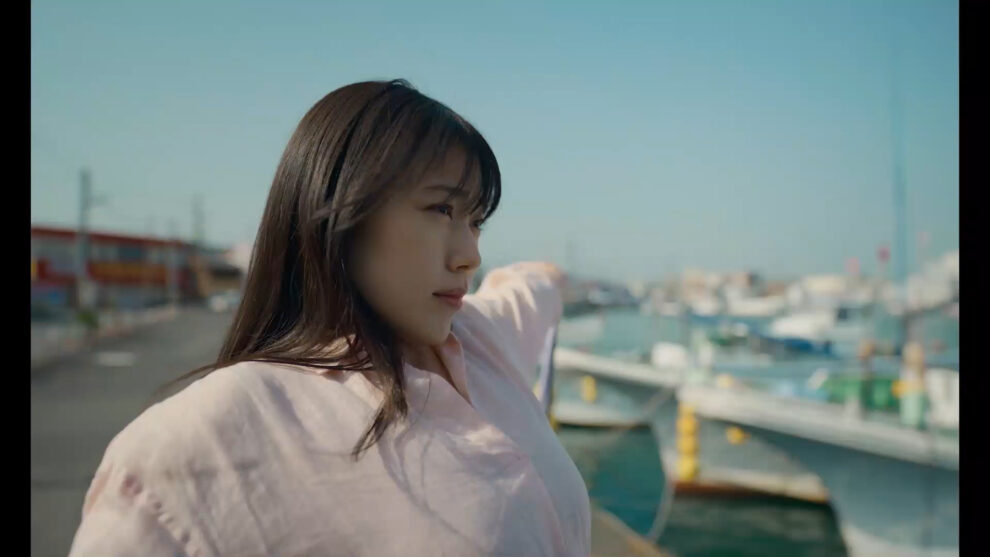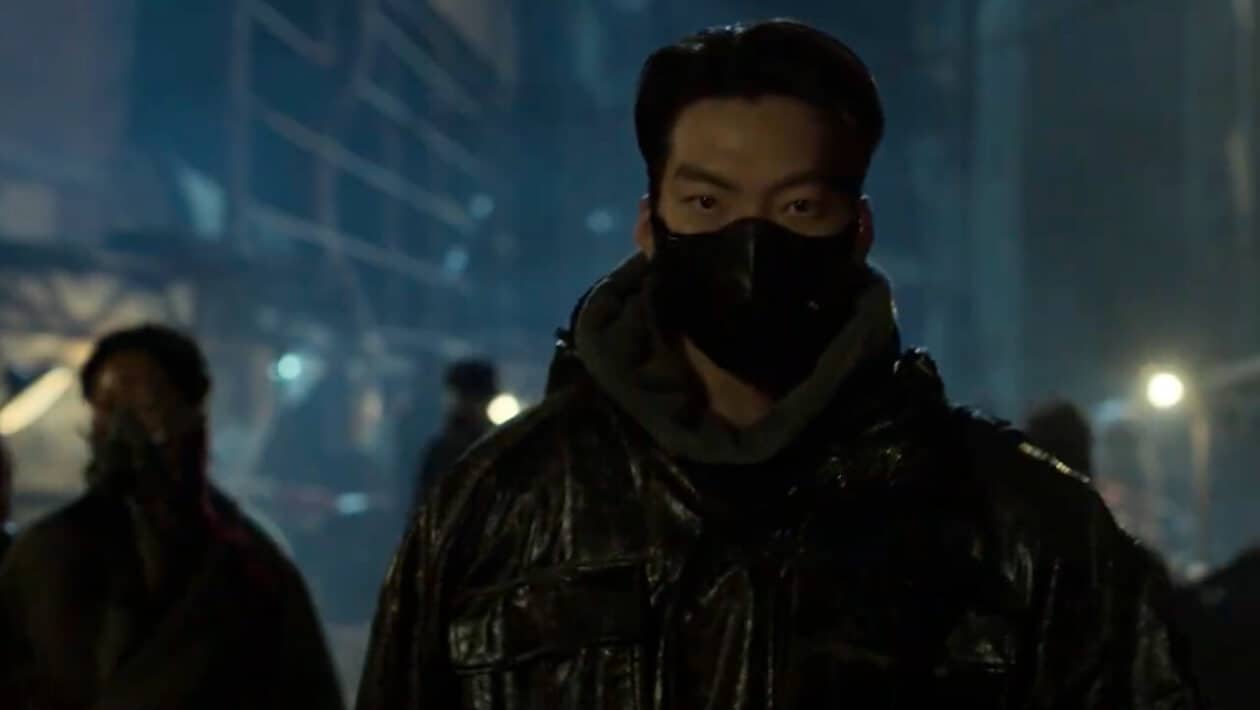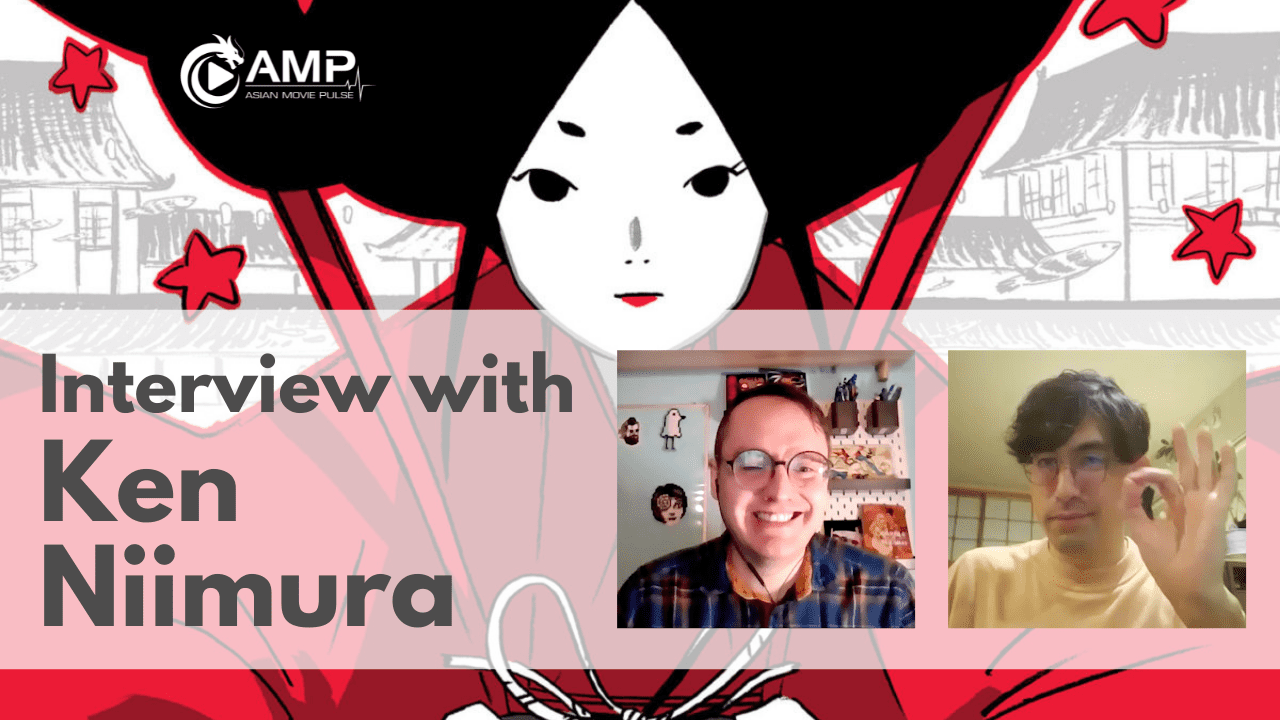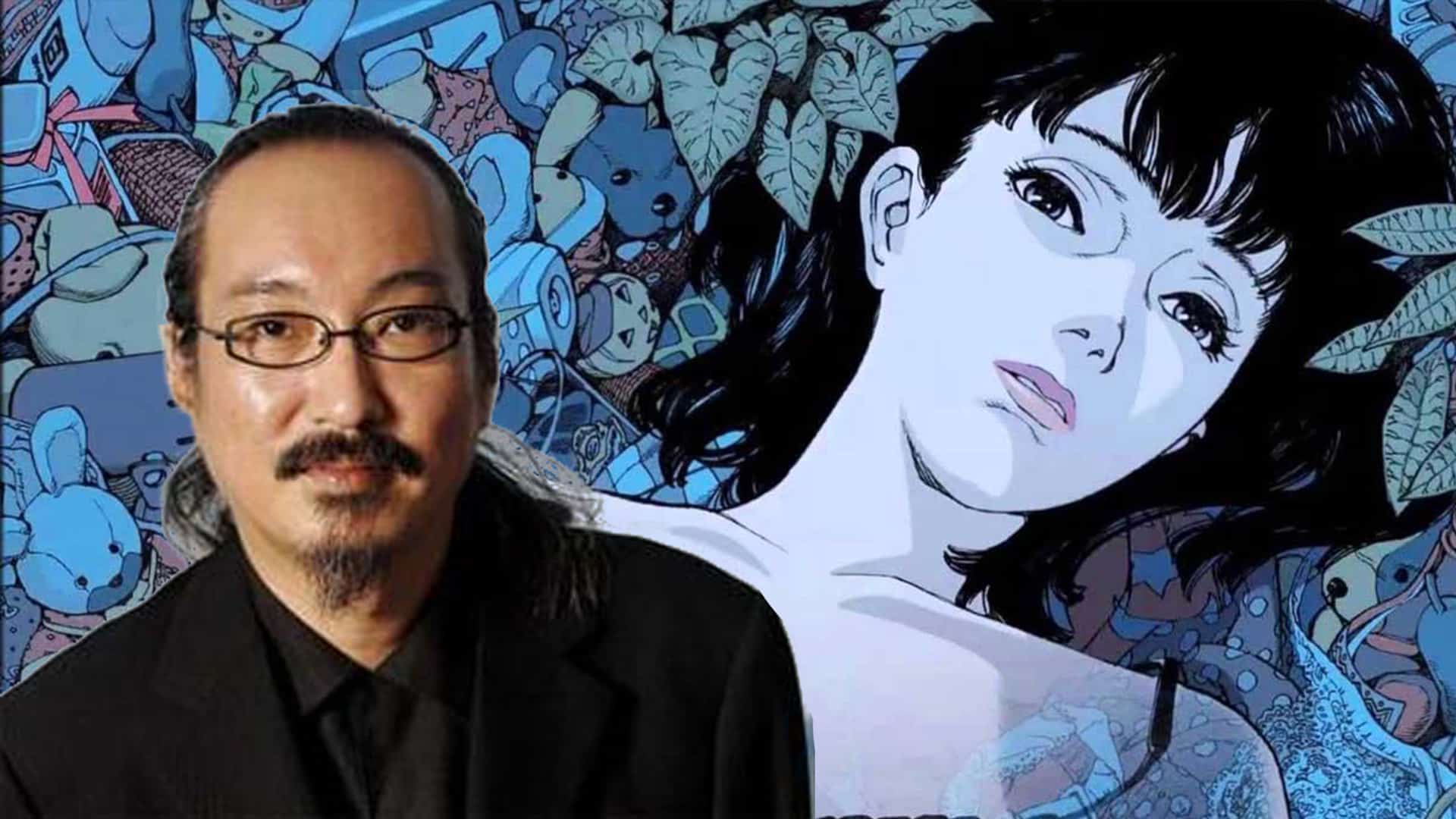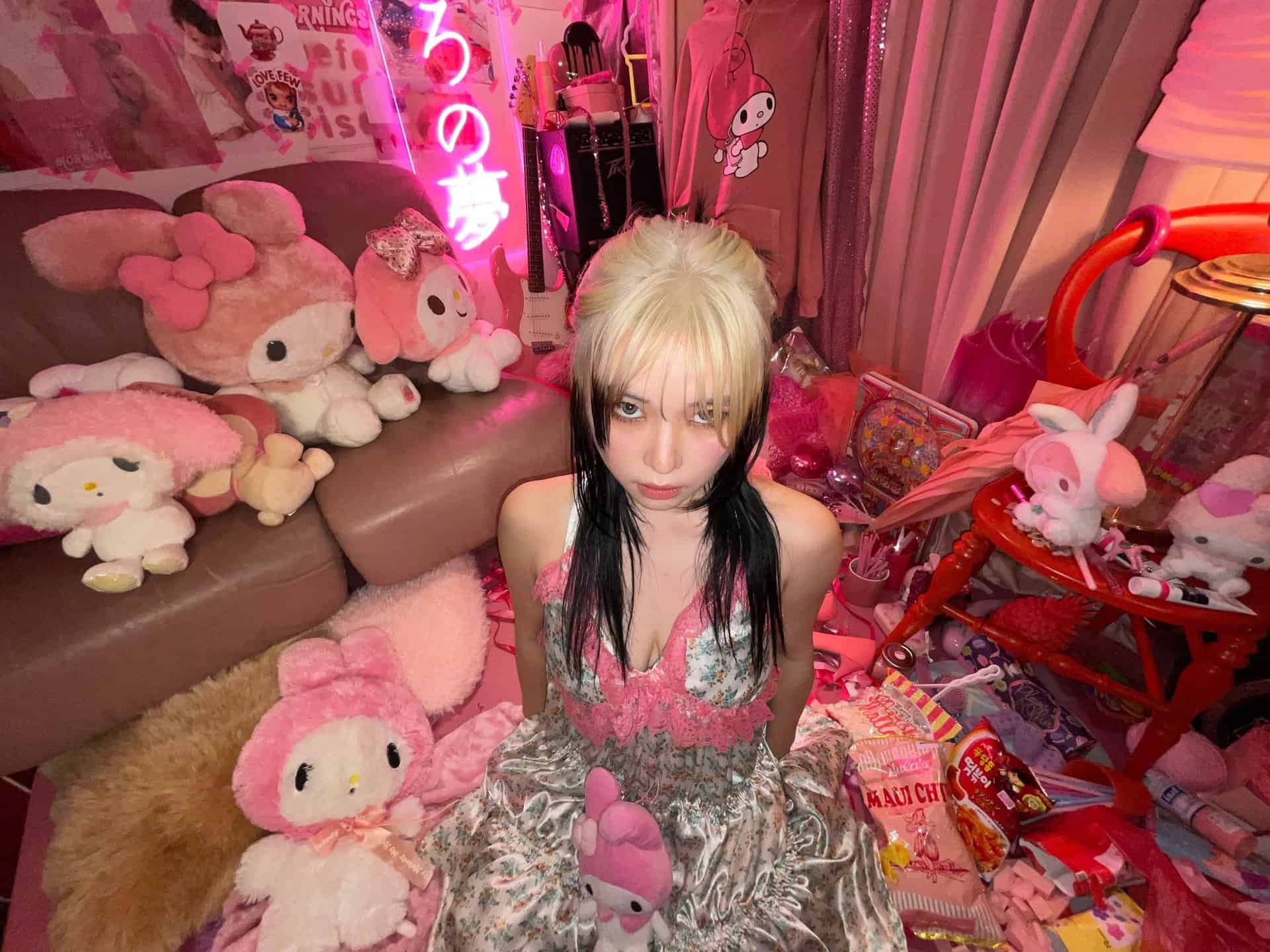Rikiya Imaizumi has been quite prolific during the last few years, coming up with two movies every year since 2019, with all of them being definitely above average. “Call Me Chihiro” however, which is based on the manga series “Chihirosan” by Hiroyuki Yasuda, seems to be his best so far.
Click the image below to follow our Tribute to Netflix

As the story begins, we meet Chihiro, a 29-years-old woman working at a bento stall at a seaside town, catering to the regulars, most of whom men who seem to be particularly fond of her, both for the overall warm and friendly attitude and for the fact that she is quite open about her previous job at a massage parlor. It seems that that is actually the role Chihiro has chosen to play in the particular setting, as a kind of guardian angel for all the lonesome and troubled souls of the area. Okaji, a teenage girl who stalks her, eventually becomes her friend when she opens up about feeling alienated from her parents. Makoto, an 8-year old boy finds in her a mother figure, since his actual single mother is working long hours, frequently leaving him alone.
A homeless man who is picked on by young boys is eventually fed and even bathed by her in her apartment. Chihiro also frequently visits Tae, the elderly woman she replaced in the bento stall after she started losing her sight. Betchin, another school girl with family problems eventually bonds with her over manga, even becoming friends with Okaji, who is actually her classmate. Bazi, a former colleague, finds a friend in her, while Chihiro hangs out with her former boss, Utsumi, with the three of them eventually becoming something like a “gang”. At the same time, however, the guardian angel is evidently rather lonely.
Check this review also
Rikiya Imaizumi directs a very tender movie, which uses Chihiro and the people she meets in order to make a number of sociophilosophical comments. The most evident one is about family, and how ones can be formed by people with no blood ties whatsoever, as much as how actual families can be a burden. Apart from this, a number of things impress in the narrative here. To begin with, although the structure is definitely episodic, Imaizumi succeeds in presenting a wholesome story, with Chihiro, the town, and eventually how all the characters come together, being the glue that connects the many different stories appearing in the film.
Secondly, and in rather dramatic fashion, Chihiro faces ‘no good deed goes unpunished' behaviors a number of times, regardless of her good intentions. Makoto's mother lashes on her for intervening with her son, the homeless man's fate is tragic and Betchin eventually gets jealous of her, in a series of events that she deals with in the best fashion, but still leave her depressed, even if for a little while.
Thirdly, the whole persona of the protagonist is equally appealing, mysterious and the source of a number of comments that go beyond the usual social norms, with Imaizumi creating a rather thorough portrait of a truly captivating character. In that fashion, Chihiro tries to help everybody around her, but her actions are not the product of need, but just what she wishes to do, as the fact that she is fine in her loneliness is highlighted repeatedly throughout the movie, but particularly in the finale. As she mentions that there can be other relationships beyond the sexual ones between men and women, that sex can actually be a deed with no romantic backgrounds, that helping others without asking anything in return can be a way to spend one's life, it becomes evident that Chihiro talks about a freedom that is very difficult to imagine, much less achieve. Essentially, though, it is this freedom that makes it difficult for her to grow roots, although even that is presented as a concept that people can do without, and that deep connections can be formed among people, even when they rarely see each other. The impact she has on all the people she meets in the town showcases this comment in the most eloquent fashion, being the main element that deems her a ‘guardian angel'.
Lastly, also of note is the way Imaizumi actually presents the reasons she decides on what she does and who she becomes friends with through flashbacks in her past, in an element that both creates a rather analytical portrait and creates empathy for an individual who is actually a deep thinker and not a ‘we love everybody hippy'. This aspect also benefits the most by the editing, with the flashbacks being well placed within the story, while the mid tempo definitely suits the overall aesthetics of the movie. The ending is, as usual in contemporary Japanese movies, prolonged, but even that is handled well here, with the extra scenes actually adding to the story.
Kasumi Arimura is outstanding in the protagonist role, portraying a rather layered character who is both analyzed fully and retains a sense of mystery. The fact that she does not portray Chihiro as a consistently cheerful woman, but as one with her own troubles, needs, and bad days emerges as one of the biggest traits of the movie, particularly because she manages to portray it in a measured fashion, without any hyperbolic reactions. The rest of the cast essentially react to her, but Van as Bazi, Hana Toyoshima as Okaji, Tetta Shimada as Makoto, and the ever present Lily Franky as her former boss, stand out. Jun Fubuki as Tae is also quite pleasant in her kind-hearted growing blindness.
“Call Me Chihiro” is a touching and meaningful movie that is well worth watching for its exploration of human connections and the power of forming deep relationships outside of blood ties, as much as a masterclass on how to adapt manga on the big screen.


